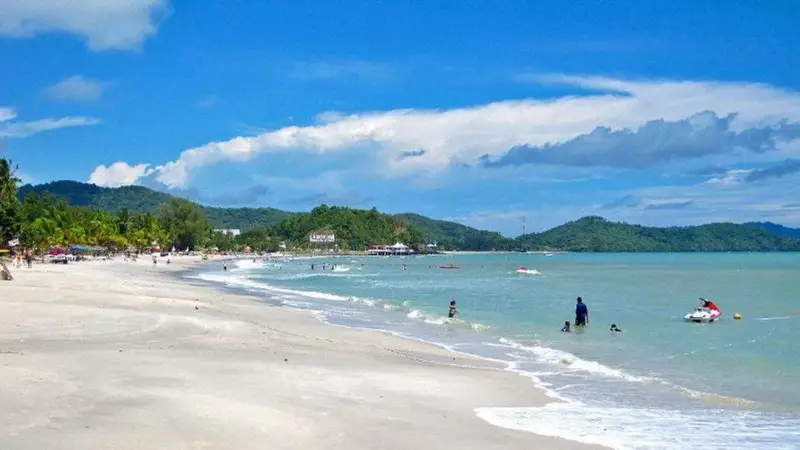
The idyllic Malaysian holiday of a young family turned to tragedy when their two-year-old son died after being stung by a highly venomous box jellyfish. The incident serves as a stark warning for Australian families planning tropical getaways.
Dream Holiday Turns to Tragedy
Russian couple Nikita and Olga Yakubanets had embarked on what they described as their "first dream holiday" with their two-year-old son Vladimir, affectionately known as Vova. The family arrived in Langkawi, Malaysia in early November 2025, filled with anticipation for their tropical escape.
Their holiday took a devastating turn during a day trip to the popular Cenang Beach, a two-kilometre stretch of coastline beloved by international tourists. "When it happened, he was in shallow water near the shore... he suddenly cried out," recalled father Nikita Yakubanets, 32, in interviews with local media.
Fatal Encounter in Shallow Waters
The family's beach day turned to horror when Vova encountered one of the ocean's most deadly creatures. His mother Olga immediately pulled him from the water and handed him to his father while she went to find a cloth to clean what appeared to be a minor injury.
"At that moment, my son stopped breathing," Nikita recounted. The two-year-old had been stung by a box jellyfish, whose venom can kill a child in under five minutes by attacking the heart, nervous system and skin cells.
Panicked tourists rushed to help the family, performing CPR on the unresponsive toddler while waiting for emergency services. First responders treated the sting wounds with vinegar before transporting the family to a medical centre, from where doctors rushed them to the island's hospital.
Race Against Time for Antivenom
The critical antivenom required to combat the jellyfish's deadly venom wasn't immediately available in Langkawi. Medical authorities had to arrange for a vial to be rushed 130 kilometres from Penang, creating a dangerous delay in treatment.
A Langkawi defence spokesman confirmed the child arrived at the island hospital in a "near-lifeless state" but was successfully resuscitated after two hours of intensive medical intervention. Following stabilisation, Vova was transferred to a major hospital on Malaysia's mainland for specialised care.
Tragically, despite the efforts of medical staff, the two-year-old succumbed to complications associated with the sting four days after the initial incident. "The doctor said that our child was poisoned by a jellyfish, then his heart stopped," his mother Olga, 32, explained.
Ongoing Marine Danger in Southeast Asia
Box jellyfish carry one of the deadliest venoms of any animal on Earth, with stings causing excruciating pain and potentially death within minutes if not properly treated. While Australia records a box jellyfish fatality approximately every three to four years, Southeast Asian countries experience significantly higher numbers.
Australian marine biologist Dr Lisa-ann Gershwin notes that Malaysia and the Philippines see 20 to 40 reported deaths per year from box jellyfish venom, attributing the higher numbers to insufficient public education and prevention measures.
District Civil Defence Officer Captain Khairul Afzan Md Yasin revealed there have been 23 cases of jellyfish stings in Langkawi in 2025 alone, including another fatal incident involving a seven-year-old child in August. In response to these tragedies, the Malaysian Civil Defence Force Langkawi has increased coastal patrols and placed warning notices about dangerous jellyfish.
The grieving parents have praised medical staff for their efforts to save their "little angel" and hope their son's death will prevent similar tragedies. "We believe this was the purpose of his life — to save others, to prevent future tragedies," Olga told local media, issuing a heartfelt warning to other families travelling to tropical destinations.





